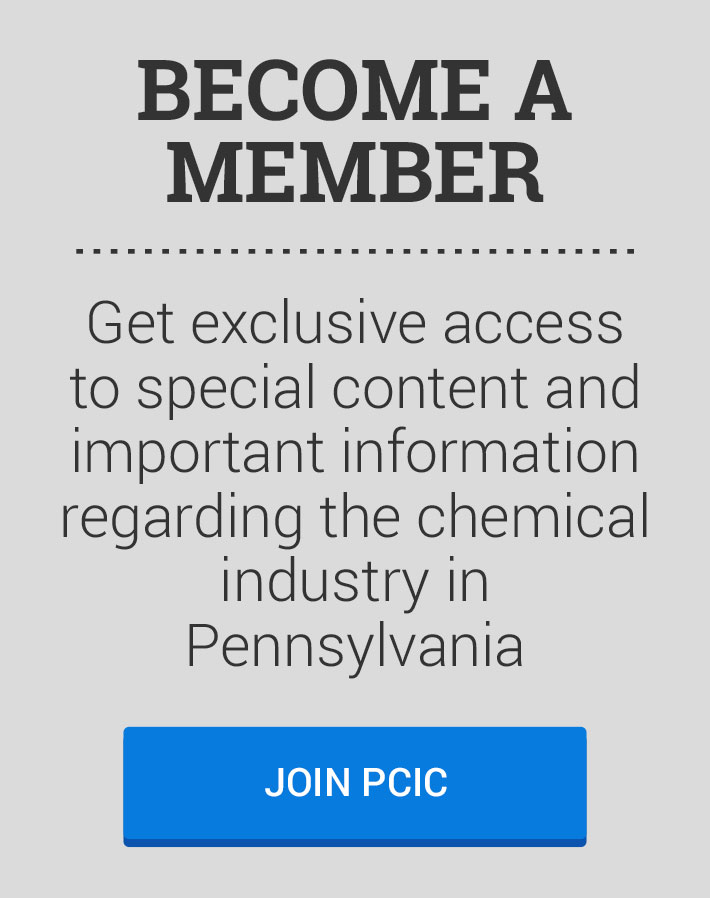October 13, 2023

Every October, manufacturers throughout the Pittsburgh region and beyond, including our Pennsylvania Chemical Industry Council (PCIC) members, celebrate National Manufacturing Month and the positive contributions manufacturing has on our society. The economic impacts are significant. According to the American Chemistry Council, the chemical and plastics industries inject over $14 billion, support over 90,000 direct and indirect jobs, and generate hundreds of millions of dollars in taxes annually.
The impacts on our daily lives may not be as obvious. How the products we purchase from a retail shelf or online service are made is often overlooked. Manufacturing starts with chemistry, which is the building block for nearly every product we use daily. When you think about it, chemistry is responsible for nearly every healthcare product, as the building blocks for cleaner energy options, high-performing building materials, food packaging, electronics, clothing, vehicles and more.
Modern society needs continued chemical and plastics production and demand is expected to increase. The good news is that every year, manufacturers are finding new and innovative ways to make their products more sustainable. Our PCIC members are advancing sustainability, expanding advanced recycling and decarbonizing supply chains, driving substantial environmental benefits.
While innovative companies are leading the way to harness new technological innovations to reduce emissions, reduce waste, and recycle more, legislators and regulators at the state and federal levels must enact sound policies that advance sustainability efforts. Forced mandates and ultimatums stifle innovation. A better path is taking a collaborative approach.
Our members, including those in Western Pennsylvania, aren’t waiting for others to lead the way when it comes to sustainability and environmental stewardship.





